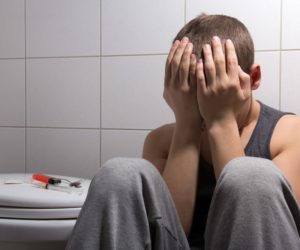How to Prevent Heroin Relapse

Learn how to prevent heroin relapse with the following tips
Heroin is a difficult drug to stop using but it is not impossible. There are many success stories about people who have stopped taking the drug and stayed sober. But there are also stories about some people who relapse and begin using heroin again. Just because a person recovers from heroin abuse or addiction does not mean that they aren’t vulnerable to relapse. If you or a loved one have a heroin abuse or addiction problem you should learn how to prevent a heroin relapse.
There are specific factors that relate to heroin addiction that can make recovery difficult for the addict. Once these factors are identified the heroin addict should have a better understanding about what they are up against and how to beat it. Some of these factors are:
- Willpower alone will not stop heroin addiction but it will aid in recovery. Heroin addiction causes changes to occur in the brain that the addict will have to overcome to recover and stay sober. The brain will have to be re-programmed and this will take time to accomplish. Psychological counseling and therapy can help the addict manage and overcome mental and physical changes in the brain. This is imperative for the recovering addict so that he can learn how to prevent a heroin relapse.
- Heroin withdrawal symptoms can be brutal for an addict to experience alone, and many addicts will begin to use again because they cannot tolerate heroin withdrawal. When an addict seeks the proper professional help to medically detox from the drug, the medical staff will monitor and manage the process so that the patient is kept safe and stable. Medications may be given to the patient to help alleviate withdrawal symptoms. It is much easier for a heroin addict to get through detox when he has professional help.
- Relapse in not uncommon among drug addicts and it should not be regarded as a failure. Some addicts may relapse a few times before they can finally stop using the drug. As recovery progresses, the addict will be able to get back on track more quickly and easily.
- Recovery is a long-term affair that the addict and his family should realize. The longer the addict stays in the recovery program at the rehab center, the more time and therapy he will receive to help him adjust to sober living and prevent a heroin relapse. A short stint of 30 days is just the beginning phase, and at least a minimum of 90 days of treatment is recommended. After leaving the rehab center, the addict will continue with counseling and peer support groups for the rest of his life to stay focused on sobriety, and avoid heroin addiction relapse.
- Many people turn to drugs as an attempt to self-medicate because they have other problems that may become overwhelming and difficult to control. Some problems that addicts may have are mental disorders, physical illness or chronic pain, trauma, abuse, poverty and family issues. These types of problems should also be addressed and treated along with the addiction so that the recovering addict can learn to manage his problems effectively without the use of heroin.
Drug therapy to treat heroin addiction is still controversial, but seems to be gaining ground. Replacing heroin with medications like Naltrexone or Buprenorphine will not remove drug dependency from the patient. What these drugs will do is give the patient a chance to remove heroin from their life and give them a chance to work towards sobriety and avoid heroin addiction relapse.
For those addicts who do relapse back to heroin, there are tell-tale signs in behavior and appearance that the family and friends can take notice of. Some of the signs of a heroin relapse are:
- Withdrawal from friends and family
- No longer attending peer support group meetings
- Withdrawal from activities that the recovering addict once enjoyed
- Speaking with fondness about their past heroin abuse or addiction
- Neglecting personal hygiene and grooming
- Thinking that it is safe to take heroin just one more time
- Hooking up with former drug using friends
- Defensive behavior is a common characteristic of relapse
- Being in denial about using heroin
- Pursuing an intimate relationship before giving them self enough time to recover from addiction
- Finding heroin or drug paraphernalia associated with heroin
There are physical signs that may indicate a heroin addiction relapse:
- Vomiting, nausea
- Itching, scratching, rash
- A lack of appetite
- Slurred speech
- Nodding out
- Constipation
- Runny nose
- Constricted pupils
- Flushed skin
- Slowed breathing
Heroin addiction relapse is not the end of the road for an addict. He will simply have to begin treatment again for his addiction and continue with aftercare counseling and support. Many addicts relapse and successfully recover to lead sober, fulfilling lives.
If you or a loved one needs help with abuse and/or treatment, please call the WhiteSands Treatment at (877) 855-3470. Our addiction specialists can assess your recovery needs and help you get the addiction treatment that provides the best chance for your long-term recovery.
